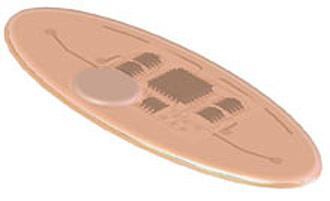 The California Healthcare Foundation's iHealthBeat recently conducted a podcast interview with Shankar Sastry, dean of engineering at the University of California-Berkeley and Monica Levy, senior director of research at Manhattan Research. Both Sastry and Levy discuss the state and promise of wireless-enabled healthcare tools. Sastry notes that continuous wireless monitoring will be challenging type of service for our healthcare reimbursement system. Here are some more notable quotes from the interview:
The California Healthcare Foundation's iHealthBeat recently conducted a podcast interview with Shankar Sastry, dean of engineering at the University of California-Berkeley and Monica Levy, senior director of research at Manhattan Research. Both Sastry and Levy discuss the state and promise of wireless-enabled healthcare tools. Sastry notes that continuous wireless monitoring will be challenging type of service for our healthcare reimbursement system. Here are some more notable quotes from the interview:
"The cell phone is perfect because it's like a wrist watch you carry around, I think the idea of having access to electronic medical records is transformational in that it changes electronic medical records to be personal health records," Sastry said. "So I think that going forward there will be a huge consumer push to be able to both record and analyze data and the cell phones are gradually becoming not just a place for repository and also for analyzing data, but also as a distributive sensor network in the sense that the cell phone can interrogate other sensors which are attached to your body."
"There is more potential now than ever because it is a personal device and it is ideal for having those bite-sized pieces of information to keep you on track through the day," said Monique Levy, senior director of research at health care research firm Manhattan Research. "There is huge potential because if you use gaming... multimedia... voice and interactivity you can get people engaged to do smoking cessation programs or monitoring your diabetes or joining some kind of community around your condition and use your cell phone as a touch point to keep you going."
"It's reasonably easy for us to measure the [caloric] in-take -- the out-take has always been way, way difficult, partly because we have such different metabolic rates," Sastry said. "But I do think with the sensing though you do get a handle on those metabolic rates. So That I think is huge: To be able to then get sense of how much you are burning up in addition to how much you are taking in."
"The second part of the story is that continuous monitoring actually then blurs the line between treatment and health maintenance that I think is going to cause a challenge for our reimbursement models for healthcare," Sastry concluded.
For more on the report, listen to the interview over at iHealthBeat.



















